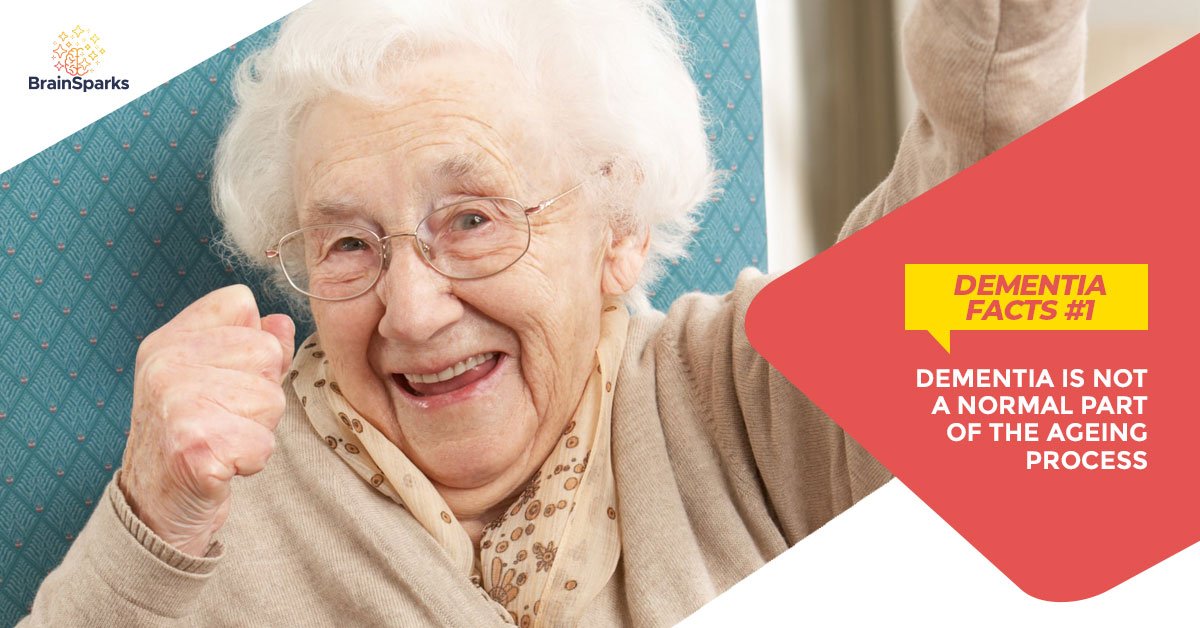No products in the cart.
Uncategorized
30 Dementia Facts for Dementia Awareness Month 2020
September is traditionally Dementia Awareness month. We know that many people don’t fully understand what dementia is and how it affects those living with it. As such, we put together a Dementia Fact a day for Dementia Awareness Month. Read them all below.
Dementia Fact 1: Dementia is not a normal part of the ageing process
While the most significant known risk factor for dementia is increasing age, dementia is not a normal part of the ageing process. The majority of people with dementia are over the age of 65, however, statistics from Dementia Australia show that there are currently 27,800 people living with younger onset dementia, so it is not just a disease of old age, as there are approximately 27,800 people in Australia with younger onset dementia (a diagnosis of dementia under the age of 65).
Dementia Fact 2: Alzheimer’s disease is the most common form of dementia
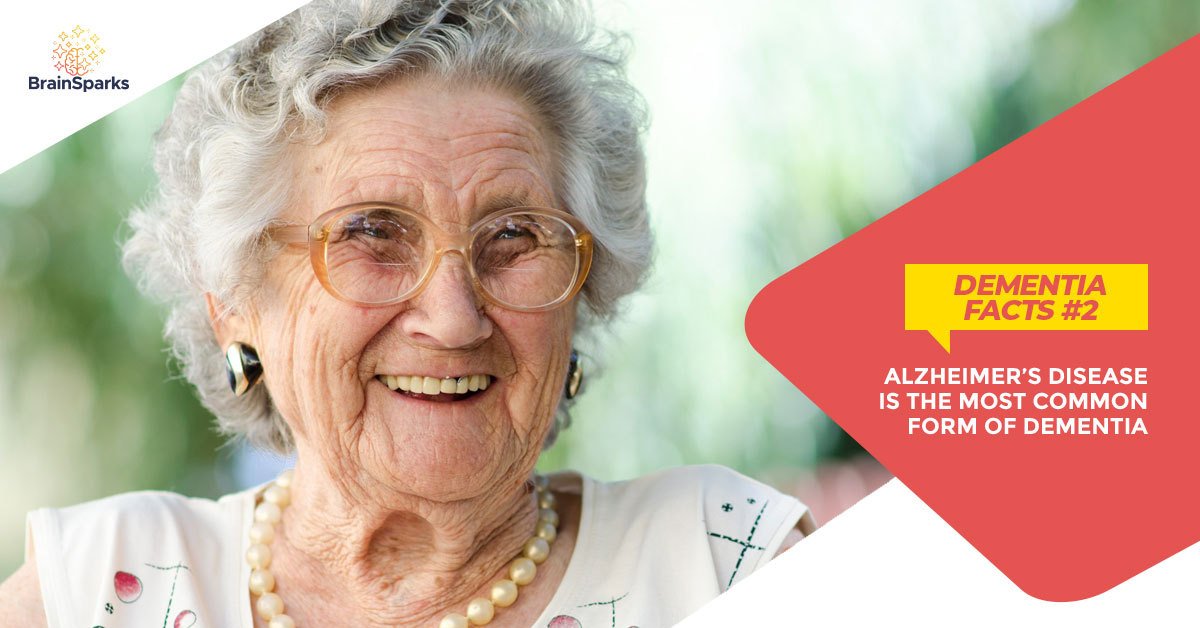
According to the Alzheimer’s Institution, Alzheimer’s disease accounts for 60-80% of dementia cases and is a type of dementia that affects memory, thinking and behaviour. Symptoms eventually grow severe enough to interfere with daily tasks. Alzheimer’s disease accounts for 60-80% of dementia cases.
Dementia Fact 3: People can not recover from the most common forms of dementia

The most appropriate treatment for dementia depends on its cause. In the case of most of progressive dementias, including Alzheimer’s disease, there is no cure and no treatment that slows or stops its progression. Drug treatments and therapies can help lessen the symptoms that are experienced.
Dementia Fact 4: Dementia results from physical changes in the brain
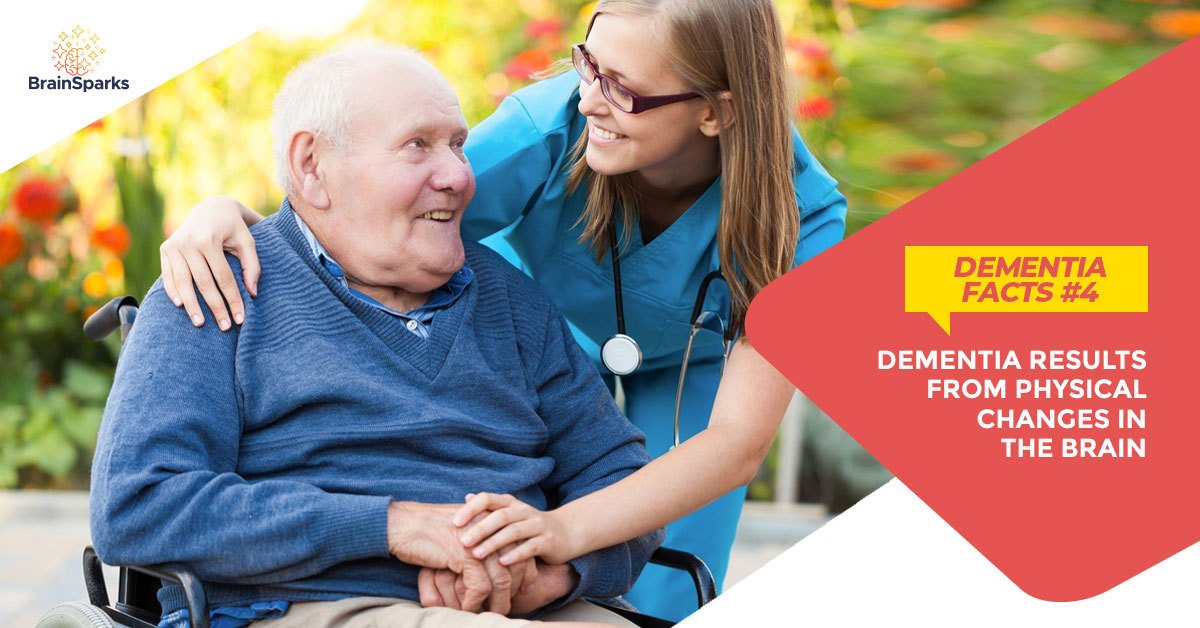
Disorders grouped under the general term “dementia” are caused by abnormal brain changes. These changes trigger a decline in thinking skills (or cognitive abilities) that are severe enough to impair daily life and independent function. They also affect behaviour, feelings and relationships.
Dementia Fact 5: Most forms of dementia reduce the length of a person’s life

Sadly, dementia is a terminal condition, and it limits the life expectancy of the person affected. Dementia progressively kills brain cells, which eventually leads to failure of the digestive system, lungs, and heart. Like any life-changing diagnosis, it is not possible to say how long someone will survive with the condition. A 2014 study in the Journal of Alzheimer’s Disease suggests that survival rates average around ten years after the diagnosis. However, this can vary significantly between individuals, and some people will live for more than twenty years after the diagnosis.
Dementia Fact 6: Blood vessel disease (vascular dementia) is the second most common form of dementia
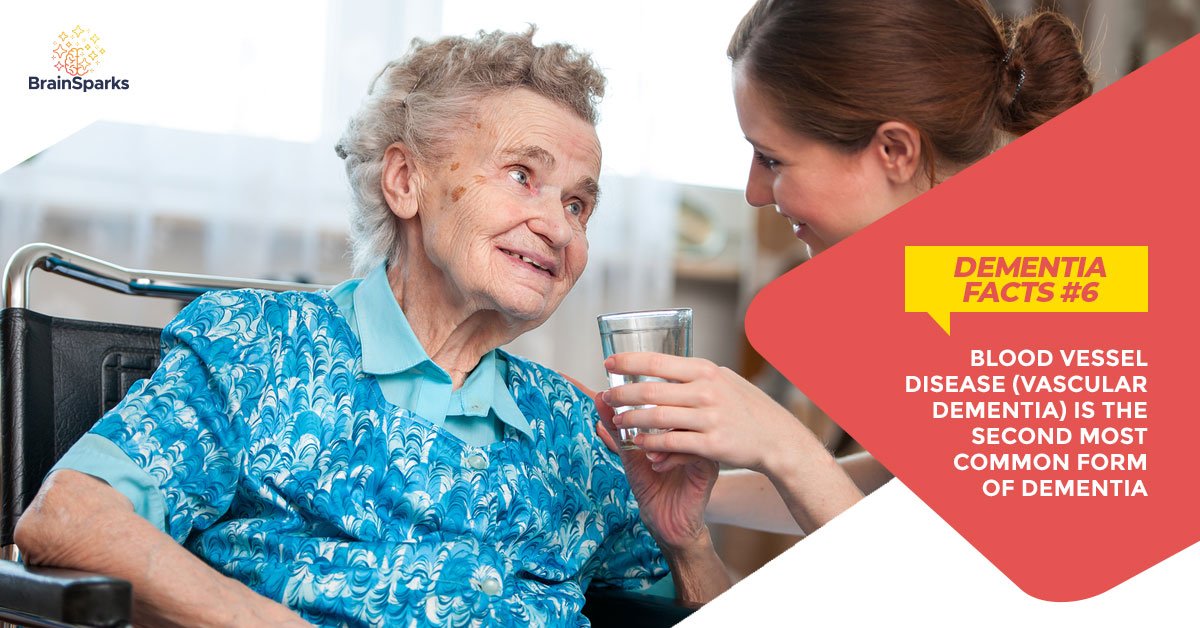
According to Dementia Australia, vascular dementia accounts for 15-20 of all dementia cases, and is the second most commonly diagnosed type of dementia. It can often coexist with Alzheimer’s disease. Vascular dementia is caused by chronic reduced blood flow to the brain, usually as a result of a stroke or series of strokes. Increased risk of dementia occurs around lifestyle factors.
Dementia Fact 7: Dementia should not be kept a secret from loved ones

Some people with dementia and/or their family members will prefer to hide the diagnosis. This is a common problem that can cause a significant conflict in the family. Denial is often a coping mechanism to hide emotions. The person with dementia or their family members may be denying the condition, as refusing to accept the disease exists makes them feel like everything is fine. It can take time to overcome the stigma of dementia and accept the diagnosis, however, acknowledging the disease is important to preserve the quality of life of the person with the condition.
Dementia Fact 8: Having high blood pressure increases a person’s risk of developing dementia
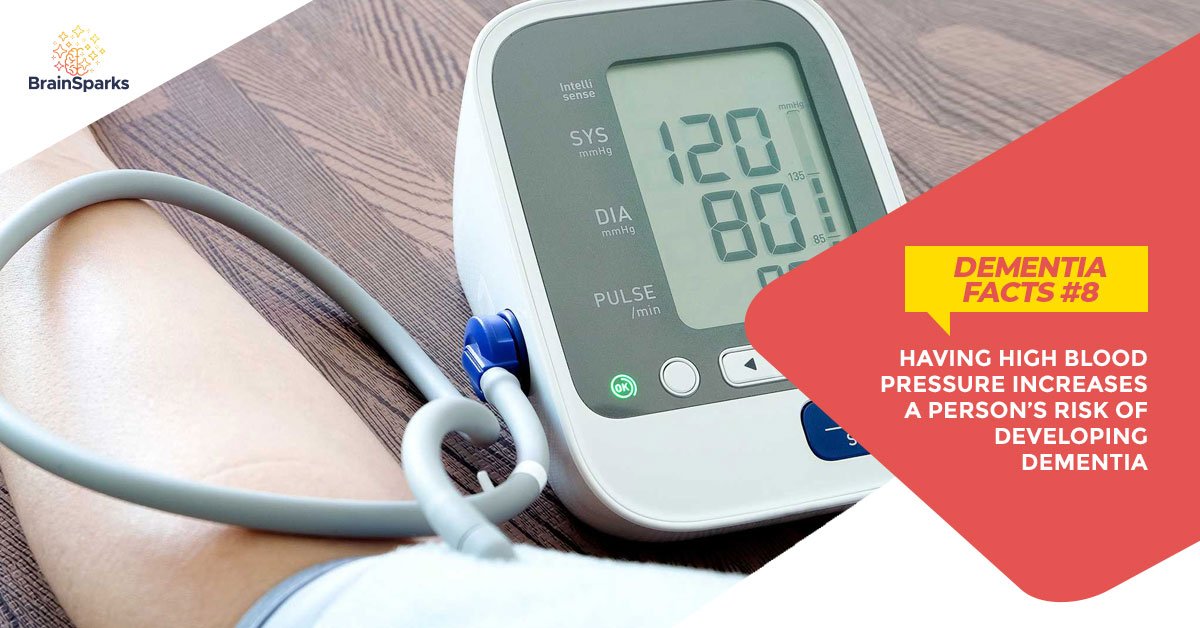
Long-term research has found that one of the risk factors for developing dementia is in having high blood pressure in mid-life, particularly true of vascular dementia. High blood pressure can result in a stroke with blood supply to the brain being affected. This occurs either through a blockage of the arteries to the brain (ischemic stroke) or bleeding to the brain tissues (haemorragic stroke) and causing death of brain cells. This demonstrates that living a healthy lifestyle is the best way to lower the risk of dementia.
Dementia Fact 9: Maintaining a healthy lifestyle reduces the risk of developing the most common forms of dementia

There is no proven method of preventing or curing dementia, however, the lifestyle choices that we make can help to keep our brains healthy as we age. Research shows that those who adopt a ‘brain-healthy’ lifestyle have a reduced risk of dementia in later life. According to Dementia Australia, living a ‘brain-healthy’ lifestyle means looking after your brain, body and heart to reduce the risk of dementia.
As the changes in the brain that cause dementia can start years, or decades before any symptoms appear, it is important to look after our brains throughout our entire life.
Dementia Fact 10: Symptoms of depression can be mistaken for symptoms of dementia
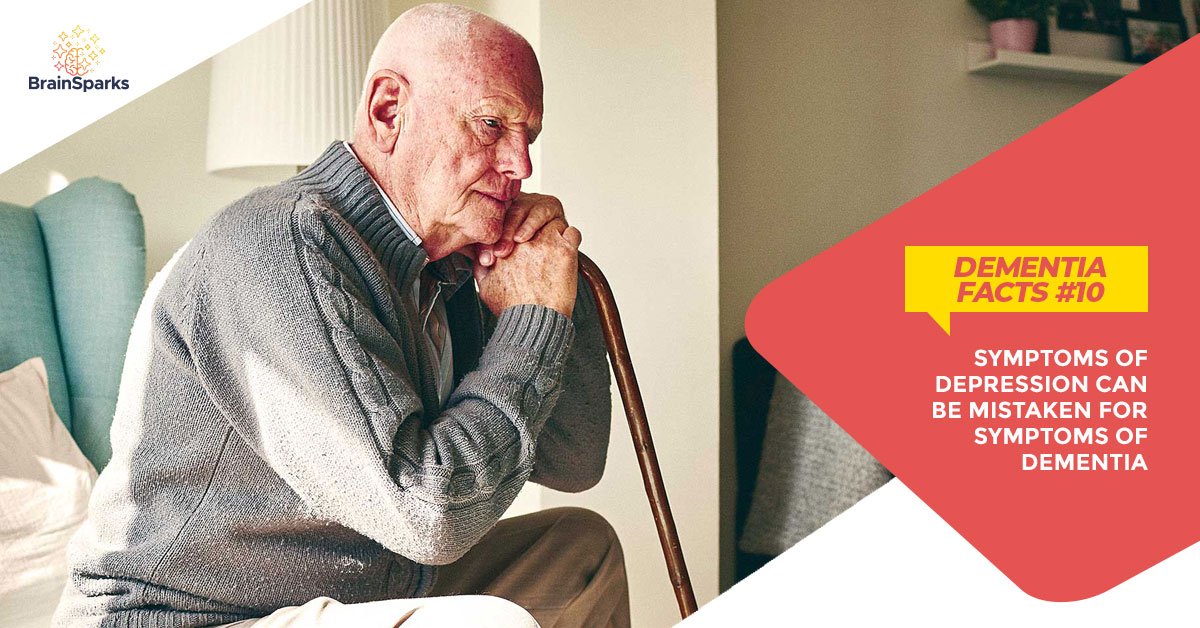
In many cases, symptoms of dementia can be caused by other conditions, many of which are treatable. Depression, nutritional deficiencies, side effects from medications and emotional distress can all create symptoms such as communication and memory difficulties and behavioural changes. This is often mistaken as early signs of dementia. As such, it is important that someone experiencing cognitive changes should consult their doctor to discover the underlying cause.
Dementia Fact 11: Exercise is generally beneficial for people experiencing dementia

As well as being highly beneficial for reducing the risk of dementia, exercise can slow physical and cognitive decline for people with dementia. A person living in the early stages of dementia may not experience any difficulties in playing sports and other physical activities that they enjoy, and they should be encouraged to continue to do these activities for as long as possible. If not suitable, There are a number of suitable exercises that can be beneficial for people in the early or mid-stages of dementia.
Dementia Fact 12: In the vast majority of cases Alzheimer’s disease is not inherited
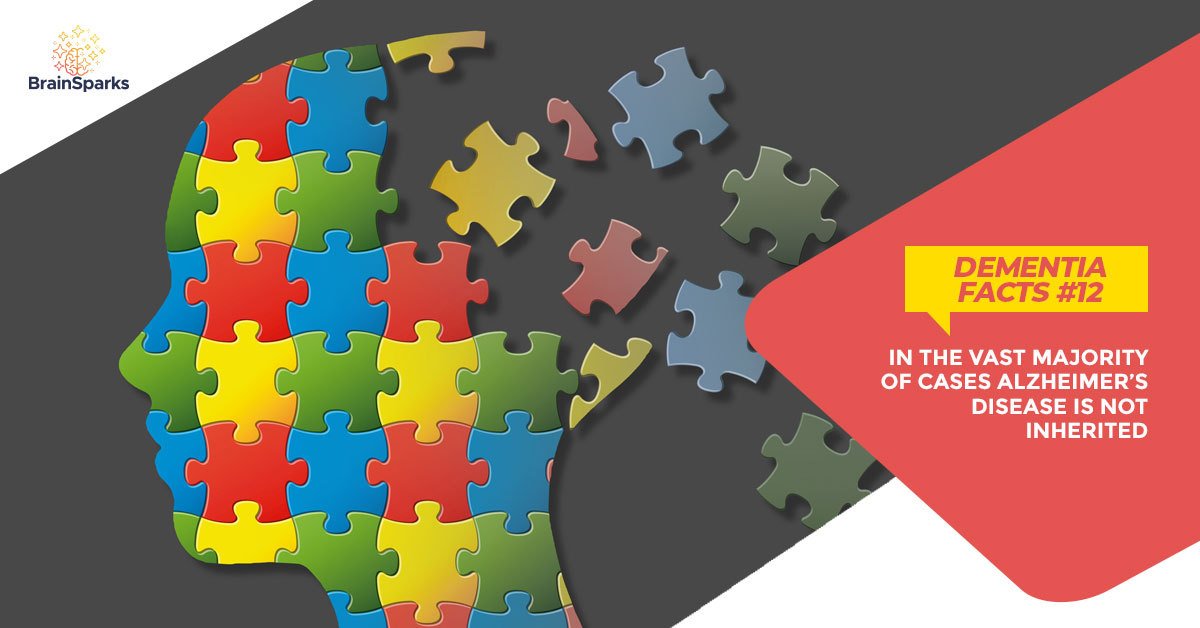
Many people affected by dementia are concerned that they may inherit or pass on dementia. However, in more than 99 out of 100 cases, children and grandchildren do NOT inherit Alzheimer’s disease. In more rare forms of dementia there may be a stronger genetic link, but these are only a small proportion of overall cases of dementia.
Dementia Fact 13: Frontotemporal degeneration (FTD )is the most common form of dementia in younger people
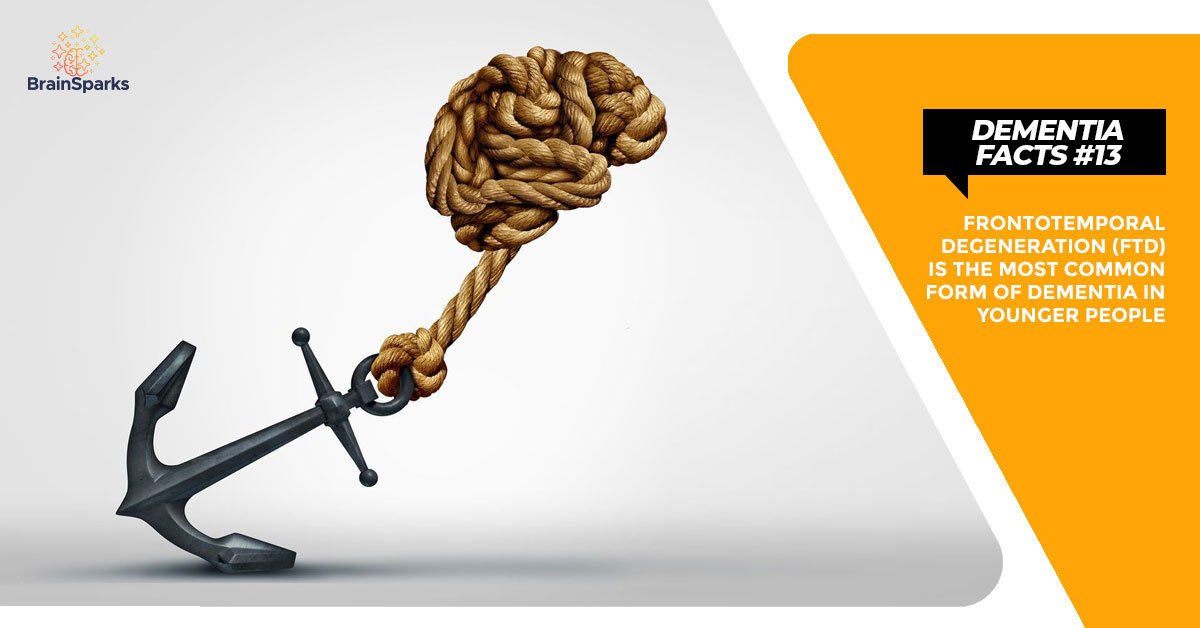
Frontotemporal dementia tends to occur at a younger age than Alzheimer’s disease. Similar to Alzheimer’s disease in that it also involves a progressive degeneration of brain cells, with symptom showing around the function of the brain cells affected, such as changes in behaviour, difficulties with language and/or movement. Frontotemporal dementia is irreversible and can affect both men and women. The average length of the disease can vary, but at the onset, symptoms include the sudden onset of memory loss, behaviour changes, and difficulties with speech and movement. Despite the disease, many people living with FTD go on to live long and active lives, contributing to our understanding of dementia.
Dementia Fact 14: Communication styles have to change as dementia advances
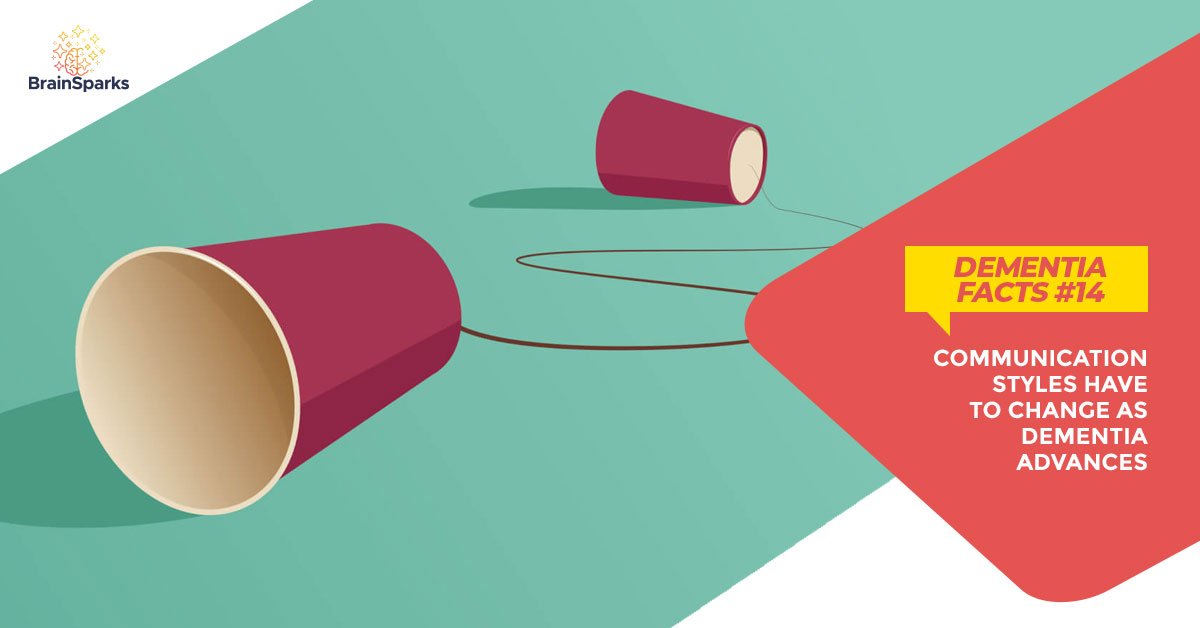
The late stage of dementia can span anywhere from several weeks to several years. As dementia progresses, the person living with dementia may lose their ability to communicate through speech and as such, will rely on types of non-verbal communication, such as facial expressions and making sounds. At this stage, the following communication styles may be beneficial:
- Identify yourself as you approach the person and ensure you approach from the front
- Encourage the person to communicate non-verbally if you don’t understand what they are trying to say, For example, ask them to point or make another gesture.
- Use other signals such as touch, sights, sounds, smells and tastes to communicate with the person
- Treat the person with dignity and respect
- Avoid talking down to the person in a manner that makes them feel unvalued.
- If you don’t know what to say, don’t worry, your presence and friendship are most important.
Dementia Fact 15: A soothing, calming atmosphere is beneficial for a person with dementia

An Australian government funded service, health direct, suggests that For a person with dementia, being in a soothing, calming environment can help to minimise their confusion, help them to concentrate, and help them get enough rest.
In order to create an environment that is calm and soothing, consider the household and its noise levels, lighting, mirrors, clutter, and the colours and patterns used through the space. Many people with dementia find noise irritating so you might have to turn the TV off more often, especially if you are trying to talk to them. It may also be necessary to eliminate shadows and reflections, and adjust colour schemes in the home to reduce the amount of confusion they feel because of sensory impairment.
Dementia Fact 16: It is important not to correct a person with dementia when they are confused
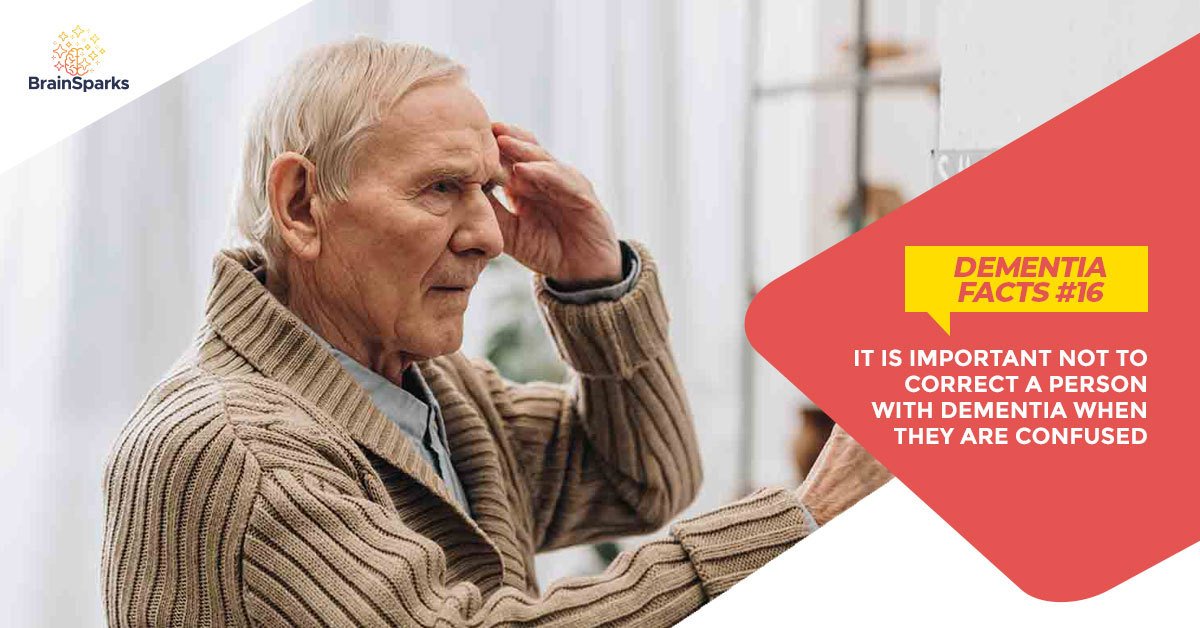
Older adults with Alzheimer’s or dementia believe what they are saying because it’s what their brains are telling them. What they tell us is their reality; it just doesn’t match our reality. As such, it is more important to ensure we are kind to the person, rather than focusing on being right. Try to go along with the person’s reality rather than correcting them. This will help to make them to feel more comfortable, calmer and happier.
Dementia Fact 17: People experiencing advanced dementia often communicate through body language

In advanced dementia, a person may have little or no speech, and instead may only make sounds or repeat isolated words or movements. As such, non-verbal communication becomes extremely important. Use touch to stimulate the senses and provide reassurance, try to achieve eye contact, and be aware of the tone of your voice at all times. Watch your own body language, too. Make sure you do not inflame the situation with your body language not reflecting your words or actions.
Dementia Fact 18: Uncharacteristic behaviours in a person experiencing dementia are generally a response to unmet needs
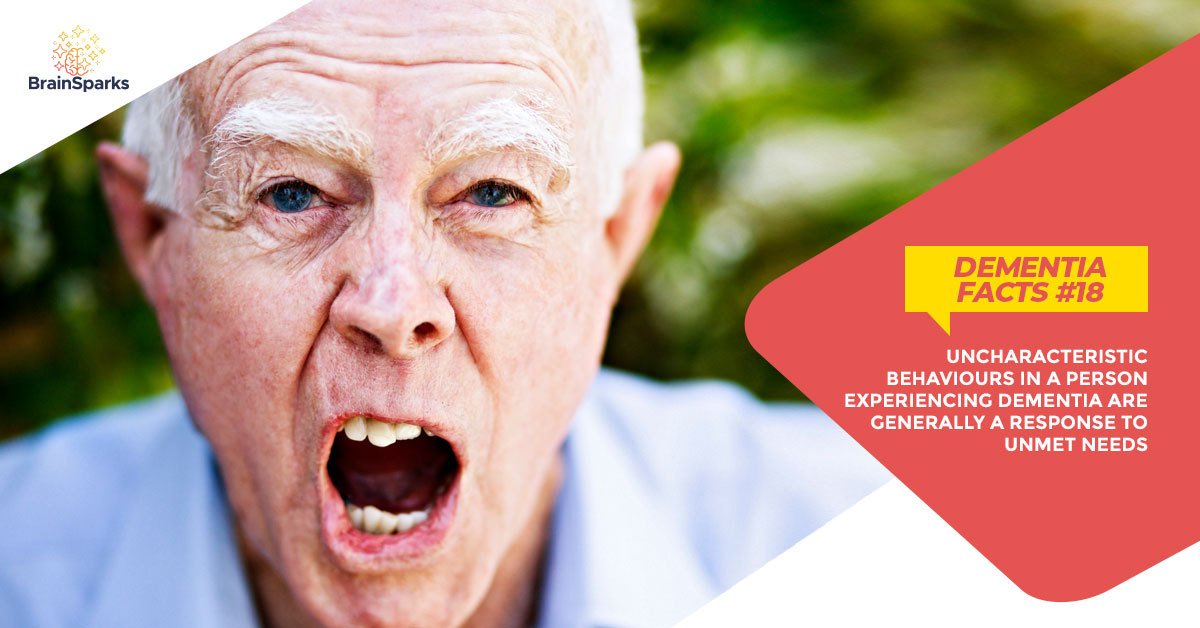
Studies have shown that uncharacteristic behaviours of people with dementia are often a result of unmet needs. This typically stems from a decreased ability to communicate those needs and to provide for oneself. Consider why the situation could be occurring or escalating. There can be many reasons from the simple example of irritation from a label in the clothing, to feeling hungry or even an adverse reaction to medication.
Dementia Fact 19: Medications are the most effective way of treating behavioural symptoms of dementia

People with dementia may develop behavioural or psychological symptoms such as depression, anxiety, restlessness, sleep disturbance, aggressive behaviour, delusions or hallucinations. It is important to try to understand and address the underlying reasons for these problems, however, it may also be necessary to seek medical advice where medication may be prescribed if the symptoms are distressing, persistent and have not responded to psychosocial treatments.
Dementia Fact 20: People experiencing dementia often have problems making decisions
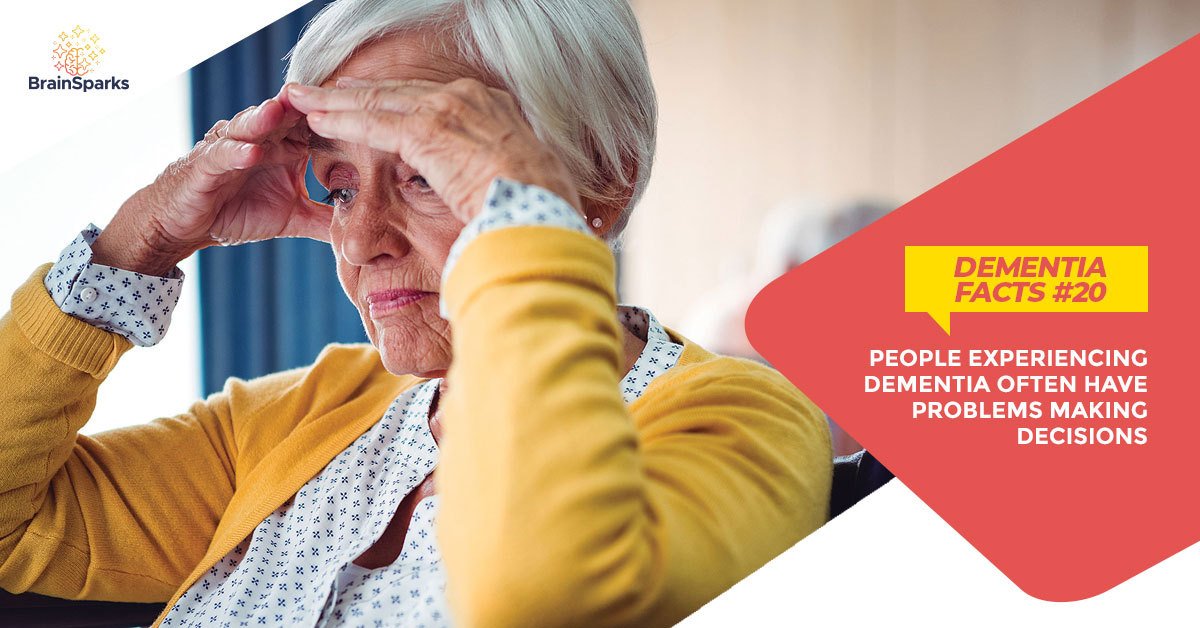
Dementia can affect a person’s ability to make decisions because it typically affects those parts of the brain that are involved in remembering, understanding and processing information. This does not necessarily mean that a person with a diagnosis of dementia lacks capacity to make decisions, as capacity is time and decision-specific. However, as dementia progresses, it is likely that a person with dementia’s capacity to make decisions will reduce.
Dementia Fact 21: Movement is generally affected in the later stages of dementia

In the later stages of dementia, there may be a significant decrease in physical capabilities. A person with Dementia may often gradually lose their ability to walk, stand or get up from a chair or bed. They may also be more likely to fall. However, not all people will have problems with mobility. Many people in the later stages of Dementia will stay in one position for a long time and may not want to move around much. This can lead to other issues that may increase the amount of care needed.
Dementia Fact 22: People with advanced dementia may have difficulty speaking
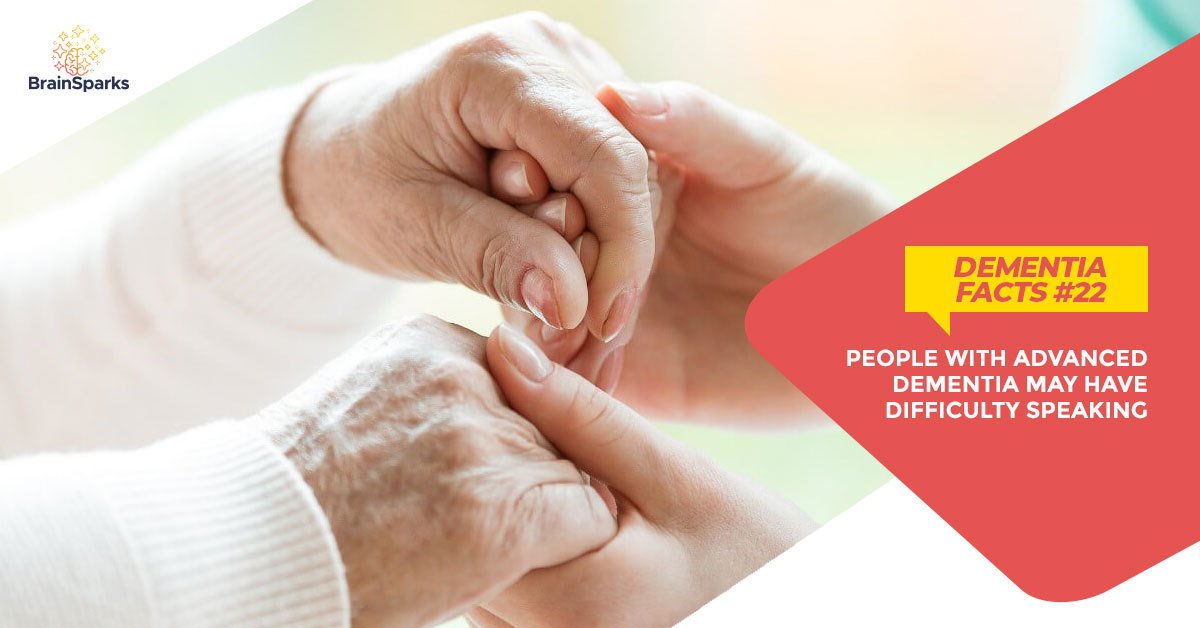
As dementia progresses and damages more brain cells, many people living with the condition will lose the ability to speak and to understand speech. This is known as “aphasia,” is. Aphasia worsens as the disease progresses and the person finds it more and more difficult to remember the right words and process what others are saying. Difficulty speaking is often one of the first noticeable symptoms in people with dementia, particularly those with Frontotemporal Dementia (FTD).
Dementia Fact 23: Daily care for the person with advanced dementia is effective when it focuses on providing comfort

People with dementia often feel confused, anxious, and unsure of themselves. In addition, they will often confuse reality, and may recall things that haven’t happened. It’s important to focus on the feelings that the person is demonstrating and provide comfort, support and reassurance through verbal and physical expressions. This can be done through holding their hand, touching or hugging them, or praising them.
Dementia Fact 24: Difficulty eating and drinking generally occurs in the later stages of dementia
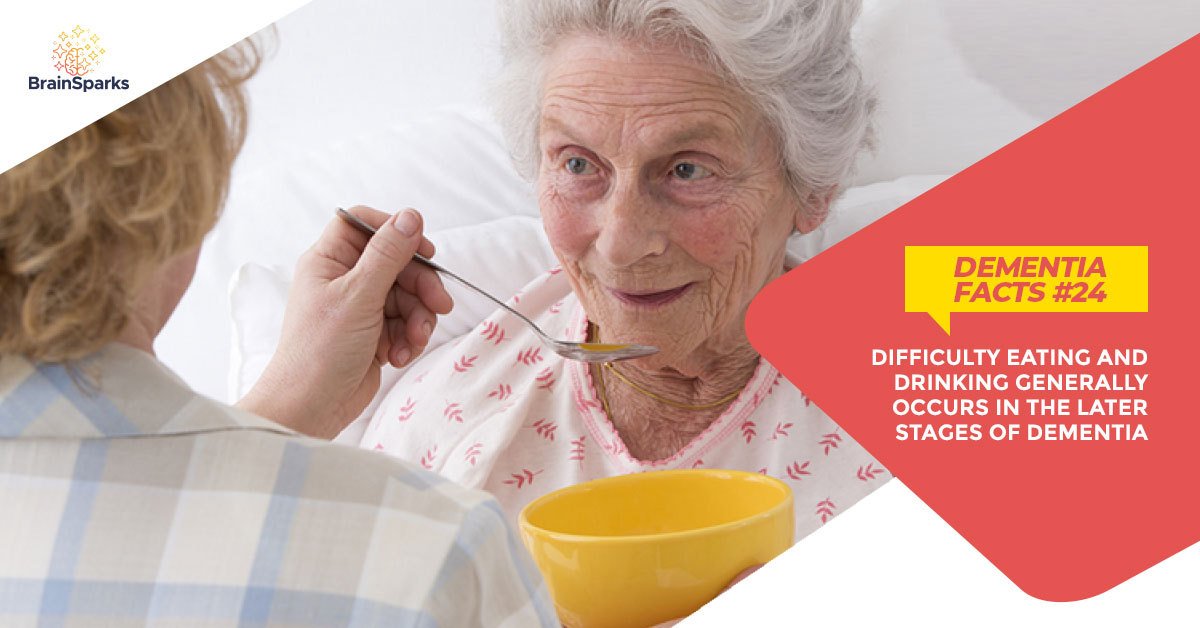
People living with dementia can develop problems with eating, drinking and their ability to swallow at any stage of their illness, however, it is most common for this to occur at the later stages. It can be an extremely difficult and emotional time for family and care staff when the person in their care only takes in a limited amount of food and fluids, or can no longer swallow safely. It is important to try and ensure eating and drinking is maintained, even if this is in smaller amounts.
Dementia Fact 25: People experiencing dementia often have difficulty learning new skills
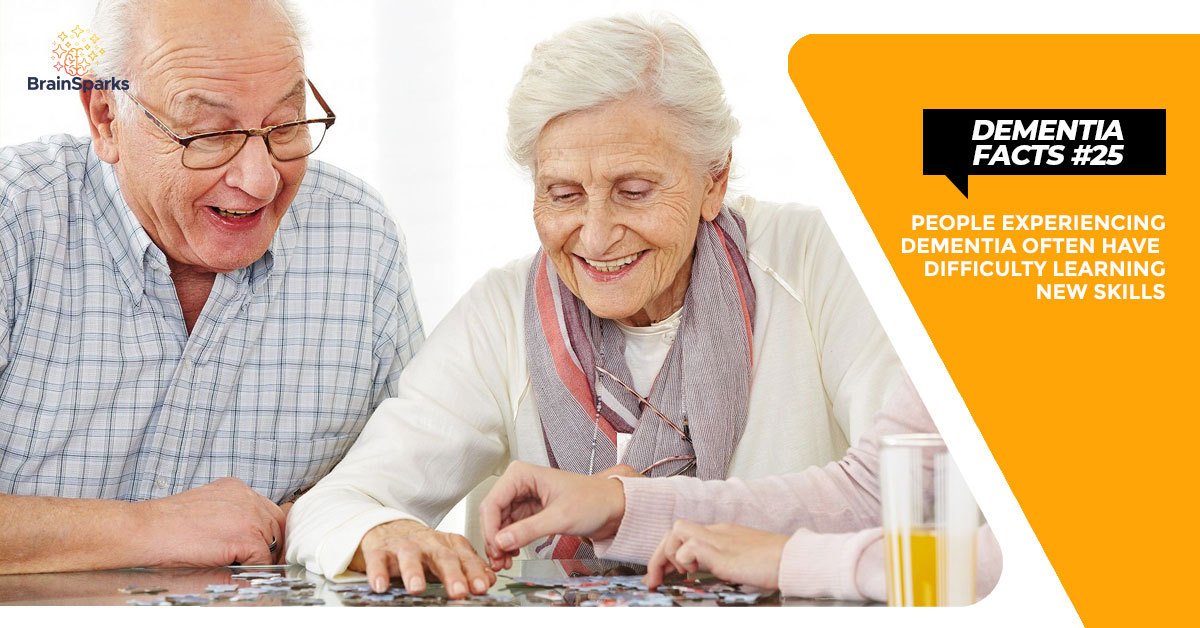
People with dementia gradually lose their ability to learn new tasks or skills. Expecting that they will learn may place an unrealistic demand on them. In addition, it’s important to remember that sometimes people living with dementia may find certain tasks too difficult, even though they may have been able to do them previously. If you are wanting your loved one to do something meaningful that they previously did or even something new, make sure you break the task down into small, achievable steps. Show them what to do first. You may need to repeat the activity many times and be prepared to go backwards.
Dementia Fact 26: Engaging in mentally stimulating activities can reduce the risk of developing dementia

Numerous studies have suggested that engaging in activities that stimulate the mind throughout life is associated with better cognitive function, reduced cognitive decline and a reduced risk of developing dementia. Activity that exercises the brain can build brain reserve that helps to compensate for the damage caused by Alzheimer’s or other diseases. Because the brain is able to compensate and keep functioning well, the onset of dementia may be delayed.
Dementia Fact 27: People with dementia can be helped to maintain their independence at home

The familiarity of the home environment, especially when the person with dementia has lived there for a long time, can help maintain their independence for longer, but there are things that you may need to do to increase their safety.
From the risk of falling, to burns and scalds as well as many other hazards you can assess their home to see how you can make it safer. For access to a checklist, or to see the home through the eyes of your loved one comment below for us to tell you how.
Dementia Fact 28: There is nothing we can do to prevent dementia
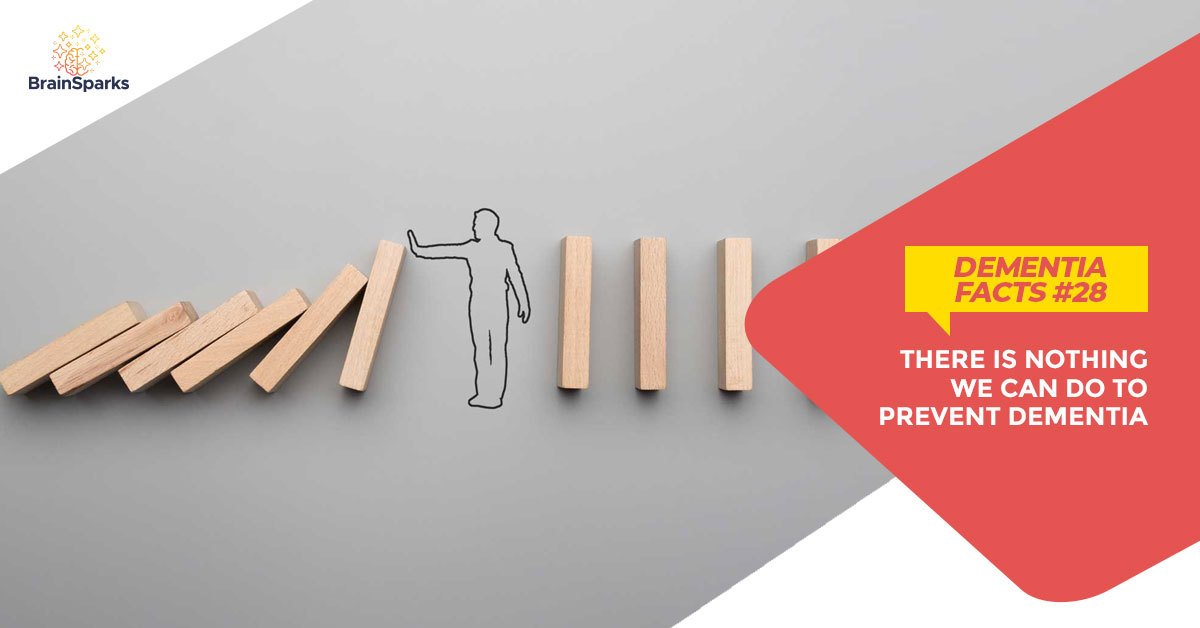
There’s no certain way to prevent all types of dementia, as researchers are still investigating how the condition develops. However, there is good evidence to suggest that a healthy lifestyle can help reduce your risk of developing dementia when you’re older. The 2020 Report by the Lancet Commission ‘Dementia prevention, intervention, and care’ tells us how we can reduce the risk of dementia through the life cycle, from early age through to old age.
Dementia Fact 29: When someone has dementia their personality may change

A person with dementia is likely to experience behaviour and personality changes. These changes occur because of the loss of neurons (nerve cells) in parts of their brain, affecting things like memory or ability to speak which can make them feel anxious, confused or frustrated. The specific changes that occur will depend on which part of the brain is losing cells, and as the disease progresses further nerve cell loss affects more parts of the brain. Personality changes can also be the result of medical issues, such as pain or infection or the medication that the person is taking to treat dementia.
As the disease progresses, the person is likely to act in ways that are uncharacteristic or unlike their “old self”. For loved ones, these changes can be particularly difficult.
Dementia Fact 30: People with dementia can enjoy life

People living with dementia can and should still have fun! They can enjoy creative activities, social outings, and games, if these are chosen carefully and planned well. If you are caring for someone with Dementia, ensure when choosing an activity that it is something the person can do and that they enjoy, bearing in mind that their interests may have changed.



